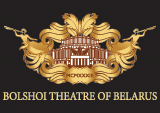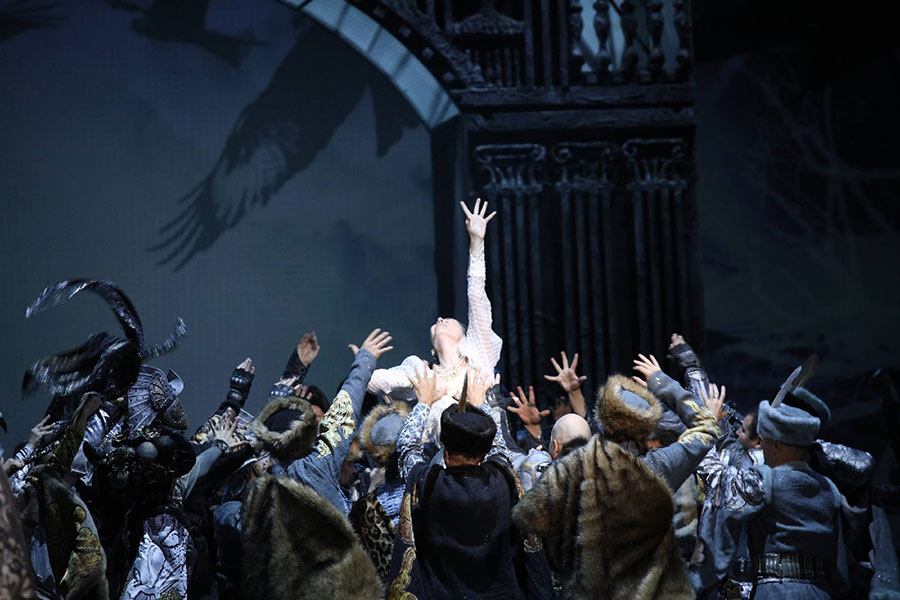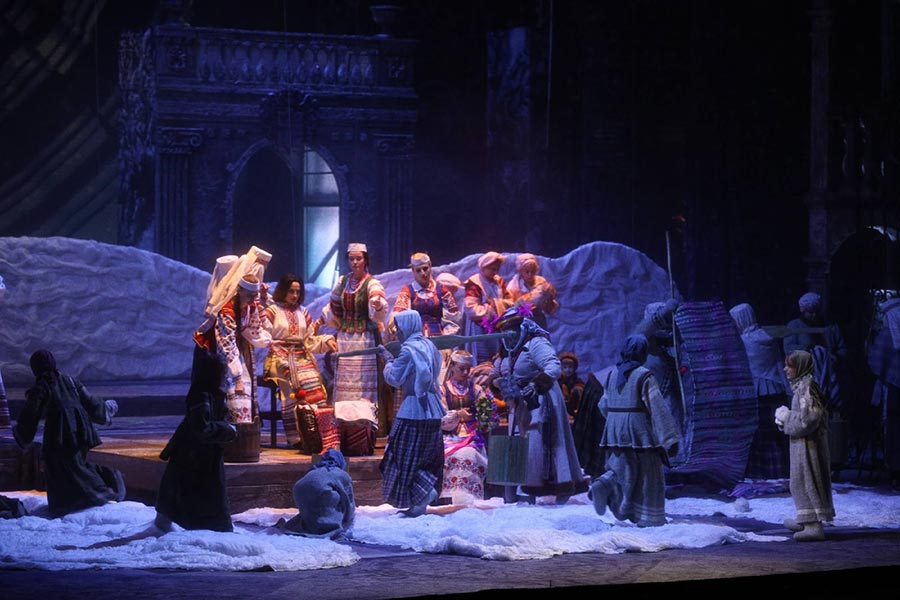 Bolshoi Theatre of Belarus
Bolshoi Theatre of Belarus
Bolshoi Theatre of Belarus
Bolshoi Theatre of Belarus
 Bolshoi Theatre of Belarus
Bolshoi Theatre of Belarus
Bolshoi Theatre of Belarus
Bolshoi Theatre of Belarus
┬Ā
Two premiere performances of Vladimir Soltan's opera King StakhŌĆÖs Wild Hunt took place in July and won audienceŌĆÖs recognition and enjoyed critical acclaim.
ŌĆśThe features of a Gothic novel, a mystical, historical and romantic drama ŌĆō this unique atmosphere exists both in Karatkevich's novel and in Svetlana Klimkovich's libretto and, of course, comes to life in Soltan's music,ŌĆÖ the director Anna Motornaya said. ŌĆśOf course, today this work can have many interpretations and variations of the realization of its idea. We talk primarily about the unique atmosphere of Belarus, about its traditions and people, through the reconstruction of rituals, legends and with a low bow to Belarusian art... For all of us, through the score of Vladimir Soltan, the romantic saga of Uladzimir Karatkevich, with its deep subtexts and twists of events, has turned into a surprisingly piercing and painfully true story about people.ŌĆÖ
This opera has really become a national musical classic. It was first staged at the National Opera and Ballet Theatre in 1989. In the year of its production, the opera was presented twice at the Bolshoi Theatre Moscow and was a great success. In 1990, the talented work of the composer, creators and performers of the main roles was awarded the State Prize of the BSSR. The subsequent performance of the opera in the "natural scenery" of the Trinity Suburb of Minsk was a unique phenomenon for Belarus. For 22 seasons, the production did not leave the stage of the theatre.
ŌĆśKing StakhŌĆÖs Wild Hunt is one of the best Belarusian operas: the music of amazing beauty, an intriguing plot and, unexpectedly, a score with a difficult story,ŌĆÖ the musical director Andrei Ivanou says. ŌĆśWhen I started working with the material, of course, I wanted to restore the cuts that had been made during the first production (which is always inevitable), and in the process it turned out that the musical text was fraught with many more mysteries. It came about that the first original score was lost and then restored after the parts. Back in the 2000s, there were attempts to preserve the text, but now we have been faced with the task of carrying out painstaking textual work, finding all the composer's handwritten materials made for the opera, because it is extremely important not only to stage the opera today, but also to preserve it in the most complete form for the future.ŌĆÖ
Andrei Merenkov was responsible for the design of the new production. The designer emphasizes that its scenery is not a simple historical illustration: its concept is based on reconstruction, symbolism, imagery. ŌĆśArchitectural fragments of castles, arches and gates appear on the stage, fog descends over the marshes and snow falls,ŌĆÖ the designer says. ŌĆśPainting is also used, including reconstructions of old portraits of the Belarusian gentry and princes. The patterns on the wings will resemble the ornaments of the Slutsk belts in the black and white and silver style, as if faded. On the stage there are figures of knights in armour, chess as a symbol of the game, as well as the Belarusian batleyka. The hunt is represented by five horsemen of the apocalypse. Colour and texture play an important role in the scenography. We hope that stylistically everything will look a single whole.ŌĆÖ
The 8 September performance will feature Vladimir Gromov as Andrei Belaretsky, Marta Danusevich as Nadzeya Yanouskaya, Dmitry Shabetya as Ryhor Dubatouk, Andrey Selutin as Ales Varona, Taras Prysiazhniuk as Andrei Svetsilovich, Victor Mendelev as Ihnat Berman, Alexander Keda as Ryhor, Alexander Gelakh as the First Nobleman, and Ilya Pevzner as the Second Nobleman.
On 9 September, the performance will star Alexander Gontsa as Andrei Belaretsky, Tatyana Gavrilova as Nadzeya Yanouskaya, Sergey Frankovsky as Ryhor Dubatouk, Stanislav Trifonov as Ales Varona, Alexander Mikhniuk as Andrei Svetsilovich, Yury Bolotko as Ihnat Berman, Andrei Valentii as Ryhor, Andrei Matyushonok as the First Nobleman, and Dzmitry Trafimuk as the Second Nobleman.
The performances will be conducted by Vladimir Ovodok.
The production team include musical director Andrei Ivanou, director Anna Motornaya, chorus master Nina Lomanovich, designers Andrei Merenkov (sets), Tatyana Lisovenko (costumes), Evgenii Lisitsyn (lighting), Nella Ogrenich (video), choreographer Olga Kostel.

